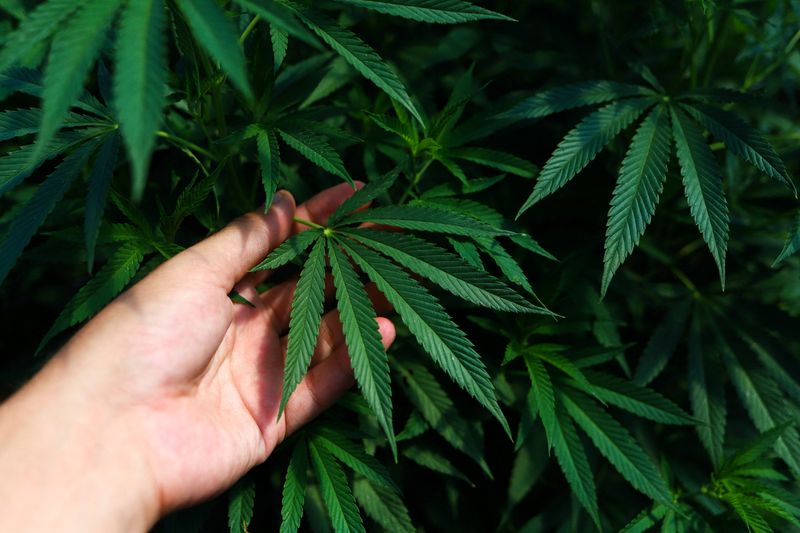MONTE VERA, Argentina (Reuters) - Argentina's new cannabis watchdog is overseeing more than 50 projects related to the research and development of cannabis and is establishing a regulatory framework as it bids to enter the potentially lucrative weed export market.
"The industry has incredible potential," said Gabriel Gimenez, director of the ARICCAME cannabis agency created in January this year, last week.
He said 51 regulated research and development projects are currently taking place around the country, including Cannava in Jujuy province, Agrogenetica Riojana in La Rioja, Biofabrica in Misiones and Medicinal Cannabis in San Juan.
Argentina is looking to build its domestic medical cannabis market and generate foreign currency through exports. It allows cannabis-derived products in pharmacies and has ordered insurers to cover prescriptions for marijuana-based medications, but recreational use is still forbidden.
The country's National Seed Institute has currently authorized 13 traceable types of cannabis seed.
In Santa Fe province, the medical cannabis research and development center (CIDCam), which has over 200 cannabis plants of various varieties, is expecting a second harvest this month. The project is intended to help producers experiment with different genetics.
Argentina is hoping the industry could generate 10,000 direct jobs, $500 million in domestic sales and $50 million in exports by 2025, according to a report from the Ministry of Productive Development.
Local firm Pampa Hemp was the first private venture authorized by the health ministry. It started cultivation in 2021 of pharmaceutical-grade cannabis at an experimental station in Buenos Aires province.
Pablo Fazio, president of the Argentine Chamber of Cannabis (ARGENCANN) and Pampa Hemp's co-founder, said demand could ignite a new domestic industry for products made from the raw material. "That in itself is a revolution," he said.
The chamber comprises some 200 private firms either directly or indirectly linked to the industrial hemp and medical cannabis business.

Latin American countries have been gradually loosening restrictions around the cultivation, distribution, and consumption of cannabis.
Argentina's smaller neighbor Uruguay was the first modern country to explicitly legalize marijuana in 2013, while recent legislation in Paraguay is seeking to legalize cultivation for medical use.